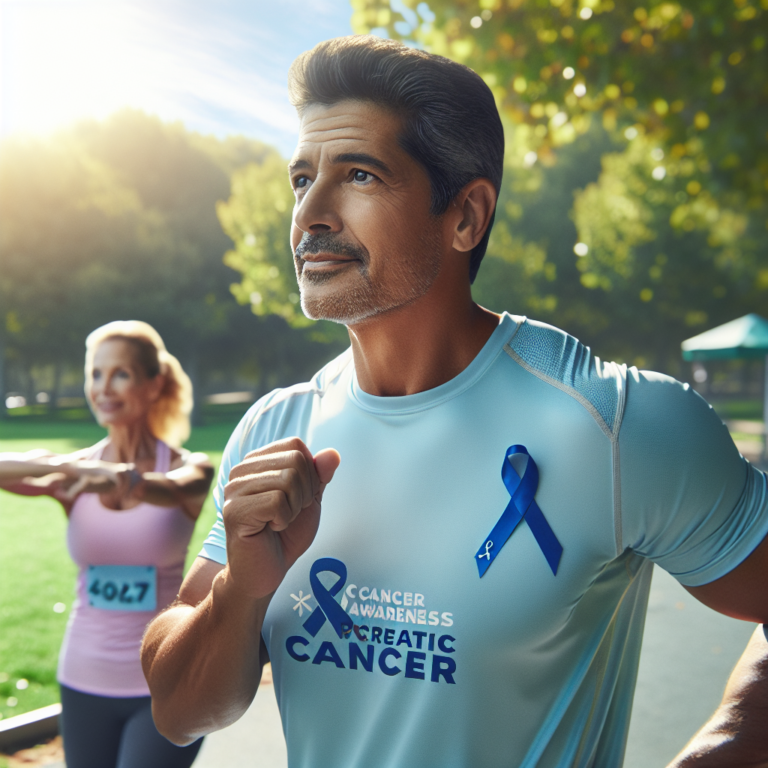Essential Guide to Choosing the Right Clinical Trial for Effective Pancreatic Cancer Treatment

In a remarkable journey through the challenges of battling stage II pancreatic cancer, Robert Weker shares his inspiring story of resilience and determination. Initially dismissing minor gastrointestinal issues, he later learned that they were symptoms of a serious condition. After an unexpected diagnosis at the age of 54, Weker’s experience demonstrates the importance of early detection and informed decision-making in cancer treatment.
Early Symptoms and Diagnosis
Initially, Robert Weker attributed his weight loss and gastrointestinal discomfort to lifestyle changes. Despite trying various remedies, including probiotics and a low-FODMAP diet, his symptoms persisted. Ultimately, pressure from his wife led him to seek specialist advice. A CT scan revealed the shocking news: he had stage II pancreatic cancer located in the head of his pancreas. This pivotal moment occurred on July 2, 2014, marking the beginning of a life-altering journey.
Navigating Treatment Options
Having previously faced cancer twice—testicular cancer in 1991 and liposarcoma in 2010—Weker was no stranger to medical challenges. This background, combined with his experience in pharmaceutical research, equipped him with a unique perspective on navigating his treatment options. His first step was to find a skilled surgeon who specialized in pancreatic cancer. Following recommendations from colleagues, Weker chose the University of Pennsylvania for his care.
- Key Medical Team:
- Dr. Jeff Drebin – Surgeon
- Dr. Ursina Teitelbaum – Oncologist
- Trish Gambino – Nurse Navigator
- Dr. James Metz and Erin Davis – Radiation Oncologists
The Clinical Trial Decision
Faced with the choice of participating in a clinical trial or opting for standard treatment, Weker weighed his options carefully. The trial, sponsored by Stand Up To Cancer, explored the effects of high-dose vitamin D combined with chemotherapy. Despite concerns from some medical professionals urging immediate surgery, Weker recognized the potential benefits of the trial.
Reasons for Choosing the Clinical Trial:
- Immediate Action: He preferred to combat any potential spread of cancer rather than delay treatment.
- Potential Benefits: Preliminary findings suggested that vitamin D might stabilize or reduce tumor size.
- Future Insights: Weker felt a responsibility to contribute to research that could help future pancreatic cancer patients.
Treatment Logistics
Participating in the clinical trial meant adjustments in his treatment schedule. Rather than the standard protocol of surgery followed by chemotherapy, Weker underwent a presurgical round of chemotherapy followed by the Whipple procedure. After recovery, he continued with additional chemotherapy sessions.
- Treatment Regimen:
- Four weeks of presurgical chemotherapy
- Whipple surgery
- Eight weeks of recovery
- Three rounds of post-surgical chemotherapy
Managing Side Effects
Throughout his treatment, Weker experienced various side effects, including neuropathy and softer fingernails, but he managed to avoid severe nausea. Despite celebrating five cancer-free years, he faced persistent side effects, including:
- Internal Bleeding: Resulting in numerous emergency visits and blood transfusions.
- Malnutrition: Leading to Total Parenteral Nutrition (TPN) for several months.
- Bacterial Infection: Likely from his PICC line.
- Shingles: A painful condition he unfortunately contracted.
- TIPS Procedure: To alleviate complications from portal hypertension.
Valuable Lessons Learned
Weker emphasizes several key takeaways from his experience with pancreatic cancer:
- Early Action is Crucial: Regular check-ups can lead to earlier diagnoses, potentially improving treatment outcomes.
- Research and Advocate: Seek multiple opinions and collaborate with a knowledgeable medical team.
- Seek Normalcy: Find ways to maintain a sense of normal life amidst treatment challenges.
- Amplify the Patient Voice: Engage in initiatives that enhance patient perspectives in healthcare.
- Value Caregivers: A supportive caregiver is essential in navigating the complexities of treatment.
Weker continues to share his journey through his blog, "Through the Patient Lens," where he offers insights from his experiences and the importance of patient advocacy. He remains committed to improving the treatment landscape for pancreatic cancer through active participation in patient councils and research initiatives.
As he reflects on his journey, Weker acknowledges the ongoing battles that come with recovery but remains hopeful that advancements in medical care will make miracles accessible to all, emphasizing the need for compassionate and effective healthcare solutions.






